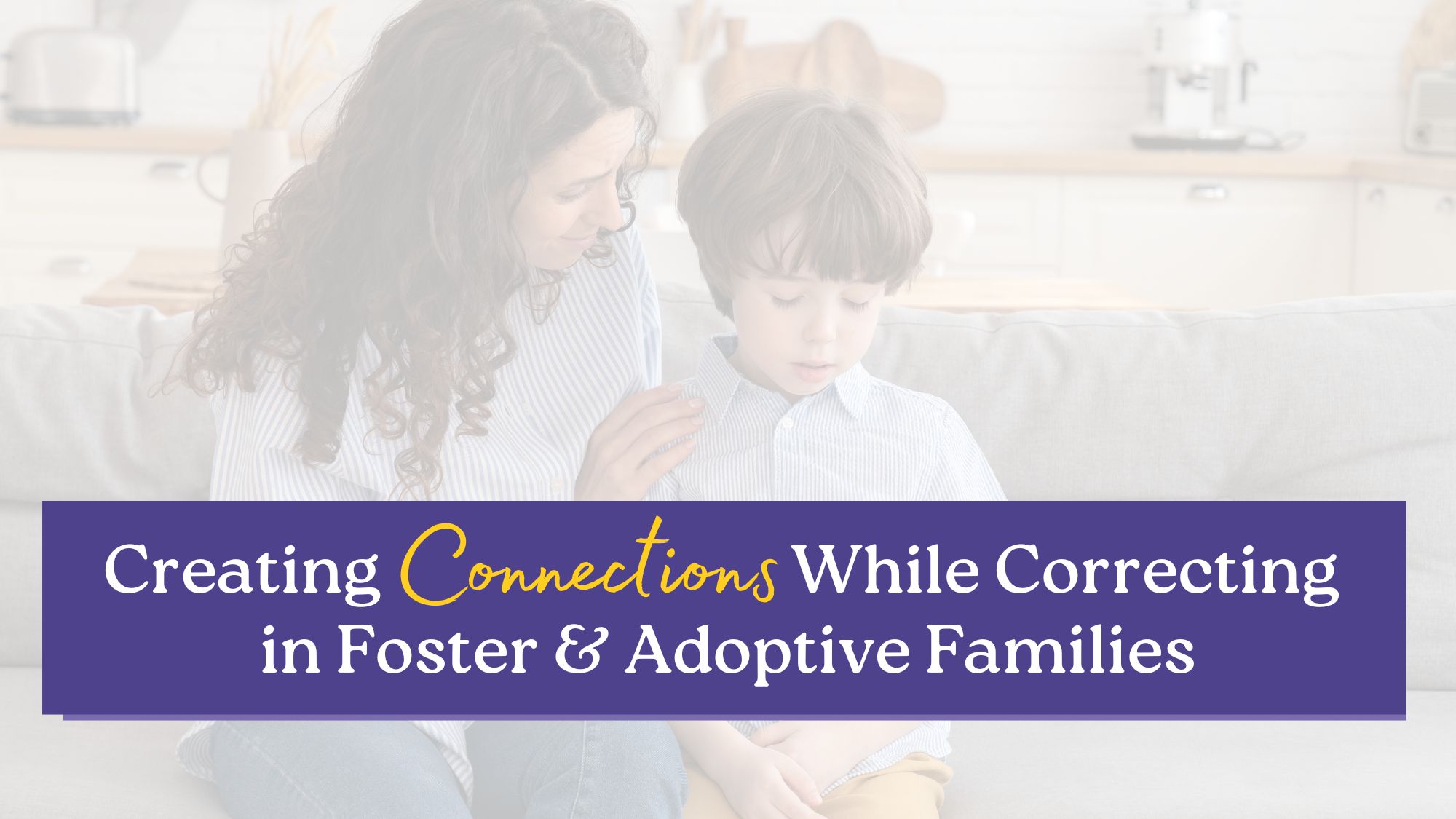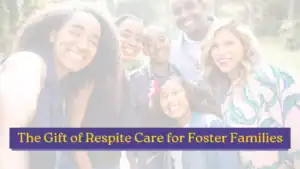Family life can be crazy, comfortable, and yes, even complicated. I’m flooded with memories of my own life—and all of these words apply. My nuclear family during my growing-up years was all of those things, but we had the added experience of also being an adoptive family. I was in foster care, my sister was in an orphanage, and my parents were walking out an infertility journey. The cry of all of our hearts was to have a family and create connections with that family. God answered those prayers for all of us through the gift of adoption.
I use the term gift intentionally—as God met our needs and our desires by taking what felt broken and making it beautiful. Beautiful—but not perfect, and not always easy. We had all the typical issues a family can face: Time and money, in-laws and outlaws, but many times those of us who are in adoptive or foster homes have the added circumstances of working through real trauma, real loss, and the true spiritual attacks of feeling abandoned, rejected, or disconnected.
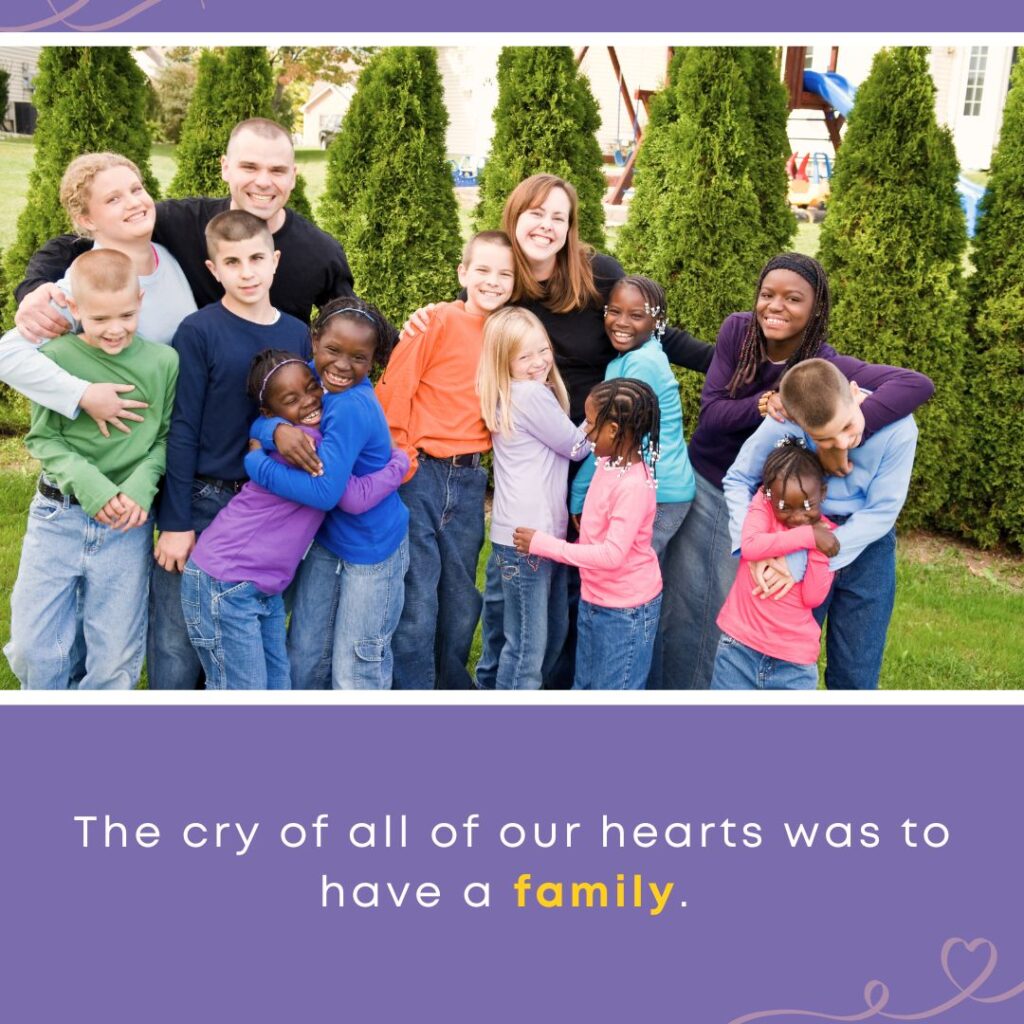
Creating Connection Through Correction
To be completely honest, the correcting part, even when completely necessary, was (and is) super hard for my world-weary heart to receive without a true and deep connection. There is a safety in a heart connection that allows the sting of critique to abate without causing a wound. I recognize that everyone’s stories, personalities, and experiences are intensely personal. Recognizing my unique spiritual and emotional makeup, I realize that many of the spiritual areas that continue to challenge me as an adult are rooted in my childhood beginnings. I have times even now when I fear a break in connection and relationship in ways that others may not be able to comprehend. This is underlined as I watch my kids walk through their challenges.
Now, as a mother to many—to-heart babies and belly babies—I am experiencing these dynamics in real time from the perspective of the mom. The tensions I understandably felt, but didn’t really understand in my youth, are now being revealed to me as our kids navigate their own stories. This was profoundly underlined for me when my own dear momma was called home to Jesus a few years ago. Relationship, connection—it is supernatural, it is spiritual, and it needs to be nurtured. It is eye-opening to watch my own kids dealing with and healing from their own lived experience, and finding joy. I can see it now from my own lived experience as a fostered/adopted child, and now I can view it from the parental position.
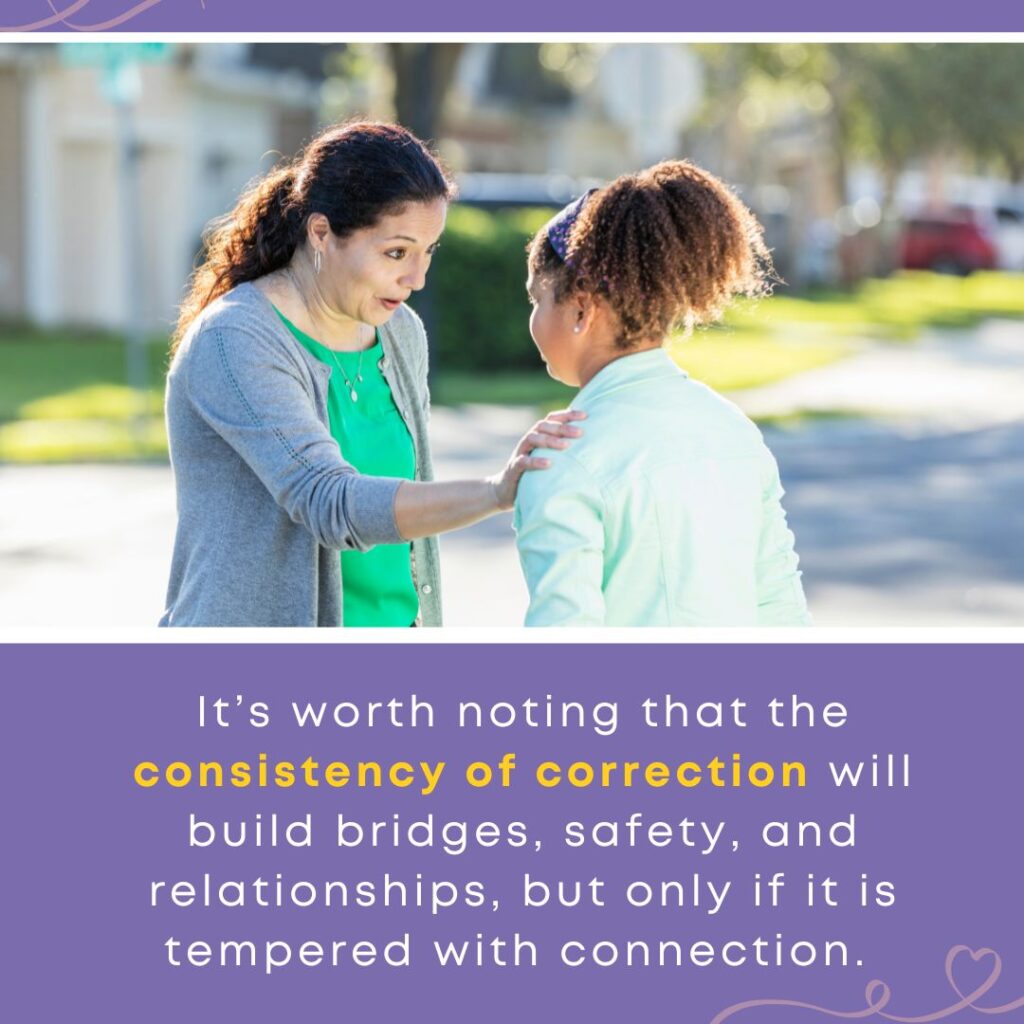
Creating Connection in a Forever Family
One of the areas of analytical and emotional review for me as a mother has been how to manage the need to correct, with the calling to connect. Connection was what my own soul longed for as a child, and by the grace of God, I found this in my forever family.
“Forever Family” had been a term that I thought absolutely must endure forever. It is the goal, absolutely. But it is not a given. Many of the children we love who come from hard places may have a hard time receiving love or showing love. Some of their hearts were wounded at tender ages and stages. However, God’s grace and goodness desires to show these kids, our kids, or maybe even our own broken selves how very much He loves us and desires a relationship with us. He wants us to share the fact that He chose us when He sent His Son to die—for you, for me, for the children in our care.
Early into our second journey as adoptive parents, my husband and I were given a copy of Dr. Karyn Purvis’ Book, The Connected Child. Anyone walking into a foster or adoptive relationship would be blessed to read her words of encouragement, instruction, and wisdom that Dr. Purvis shares throughout this particular book, but truly throughout her life’s legacy.
Boundaries and Creating Connection
In any parent/ child relationship, there will exist the need to correct and the need to cleave. Young children find their boundaries and their safety points by knowing that their parental figures will show them love and care through safe boundaries. Older children may bump up against these boundaries, but they know through consistency and care that it is for their own good – whether or not they appreciate it, or agree. Kiddos who have experienced trauma and loss will need more connection, more trust-building, and more grace.
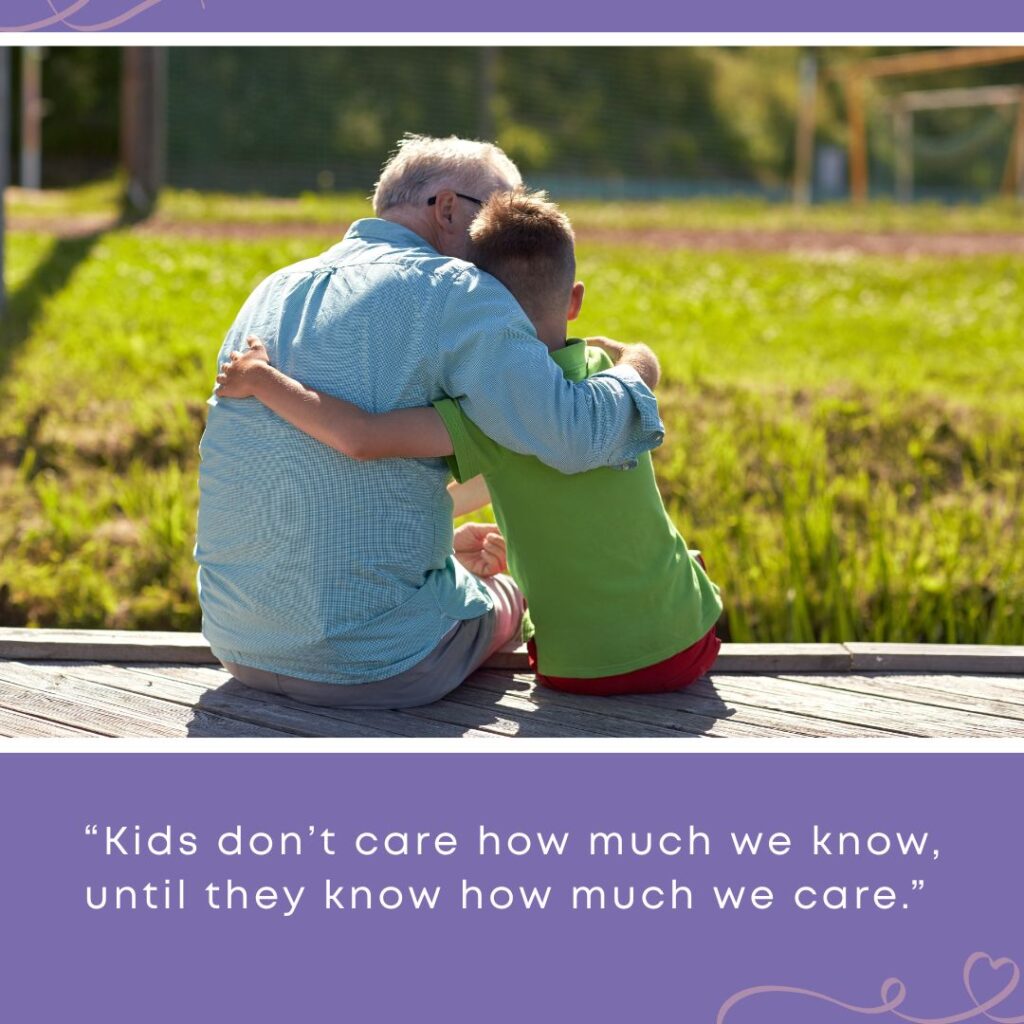
Consistency in Correction
It’s worth noting that the consistency of correction will build bridges, safety, and relationships, but only if it is tempered with connection. This is good. This is biblical; however, it will not happen without intentional effort. The first commandment with a promise is found in Ephesians 6:1, which says, “Children, obey your parents in the Lord, for this is right. Honor your father and mother.” This is true and good. But this command is well-coupled with the reminder that Colossians 3:21, “Fathers, do not provoke your children, lest they become discouraged” (NKJV). Correct, but connect.
When we take the whole counsel of God and use that as our standard in parenting, we leverage the truth of His Word. When we follow God’s biblical counsel, we position ourselves as parents to be able to “Train up a child in the way he should go; and when he is old he will not depart from it” (Proverbs 22:6, KJV).
Because isn’t that the ultimate win—connection with the ability to correct, which allows true relationships to blossom. “Kids don’t care how much we know, until they know how much we care.” I first heard this quote from a professor while I was working on my Master’s degree in early childhood education years ago. It is a profound truth, supported by scripture and underlined by lived experience. I don’t know about you, but I now have an immediate need to go hug my daddy, my husband, and my kids. Family is precious, no matter how that family is built. God is still in the business of writing redemptive stories. Families like ours are living examples of God’s heart for all His children, including ours.










